Are you looking to extend your contract engagement and ensure a smooth transition for all parties involved? Crafting the perfect letter for this purpose not only helps maintain professional relationships but also sets clear expectations moving forward. In this article, we'll explore a sample letter template that you can customize for your needs, ensuring that all essential details are covered. So, let's dive in and discover how to create an effective contract extension letter!
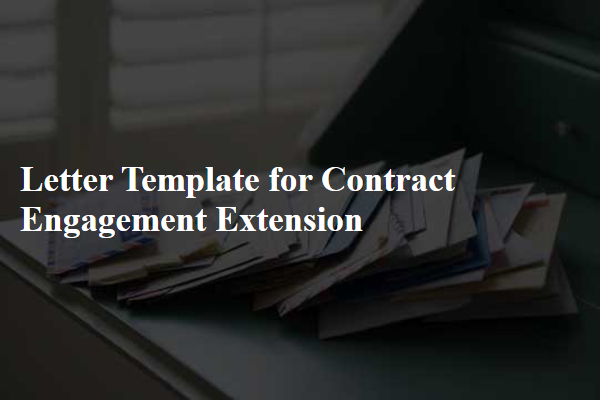
Clear subject line
Subject: Contract Engagement Extension Request Note: The subject line clearly indicates the purpose of the email, allowing the recipient to understand the content immediately. Clear communication is essential in professional correspondence regarding contracts and agreements.
Salutation and formal greeting
Contract engagement extensions often require clear communication to ensure both parties understand the terms and duration of the extension. Formal greetings such as "Dear [Recipient's Name]" or "To Whom It May Concern" can set the appropriate tone for the communication. It's essential to include relevant details, such as the original contract date, new proposed end date, and any amendments to the terms of engagement. The purpose of this communication is to reaffirm mutual interests in extending cooperation and to avoid any potential misunderstandings during this period.
Reason for extension
A contract engagement extension often occurs in collaborative projects within industries such as construction or consulting. An extension may be required due to unforeseen circumstances like delays in project approvals from local authorities, leading to a revised completion timeline. Additionally, resource availability issues, such as skilled labor shortages or supply chain disruptions, can necessitate an extension to ensure project quality. In some instances, adjustments in project scope, such as incorporating additional requirements from stakeholders, further warrant an adjustment to the existing contract. These factors collectively underscore the need for an extension within the contractual agreement.
New terms and conditions
An extension to a contract for engagement necessitates careful consideration of new terms and conditions that clarify the responsibilities and expectations of all parties involved. Clear deadlines such as a new termination date should be specified, ensuring that both parties understand the duration of the extension, typically ranging from three to six months for standard contracts. Compensation adjustments may also be required, including hourly rates or project fees, particularly if the scope of work has changed or if inflation has affected costs. Additionally, specific deliverables or milestones must be outlined to maintain productivity and accountability. It's crucial to include clauses regarding confidentiality agreements, intellectual property rights, and dispute resolution procedures to safeguard both parties' interests. All modifications must adhere to local laws and regulations governing contracts, often outlined in jurisdictions such as the United States or European Union, ensuring legal enforceability.
Request for agreement signature
When seeking an extension for a contract engagement, it is vital to highlight key elements. A formal request letter, targeting agreement signatures, emphasizes clarity and professionalism. Begin by stating the current contract's specifics, including the expiration date, involved parties, and the nature of the engagement, focused on details such as the project deliverables or services provided. Outline reasons for the extension request, which may include factors like project scope changes, unforeseen circumstances, or mutual benefits observed during the initial term. Specify the proposed new end date, ensuring to mention any adjustments in terms and conditions, if applicable. Finally, express appreciation for collaboration, and politely request the relevant signatures to formalize the extension, ensuring all parties understand their continued commitments.

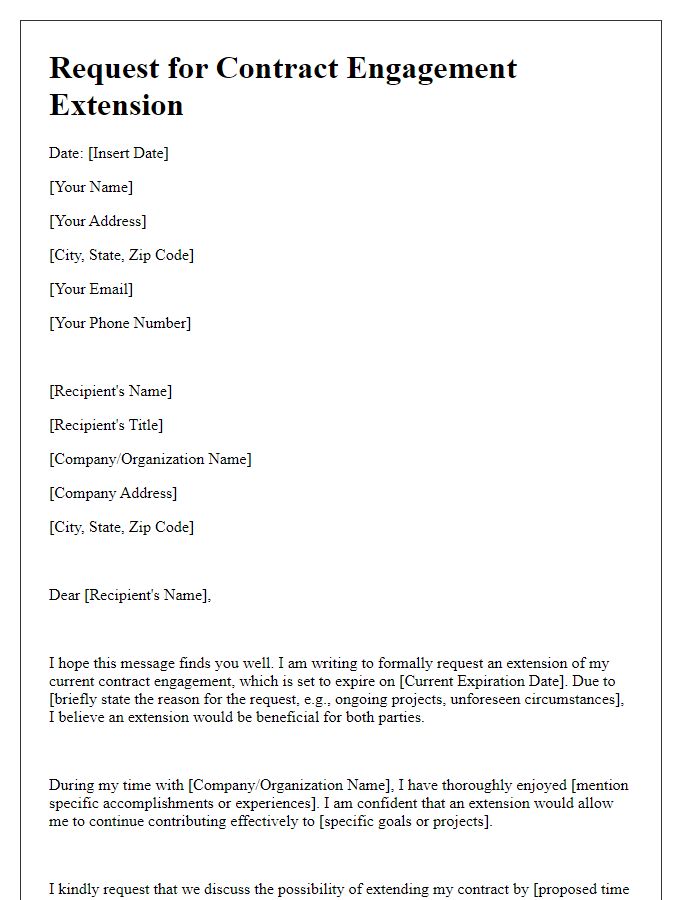
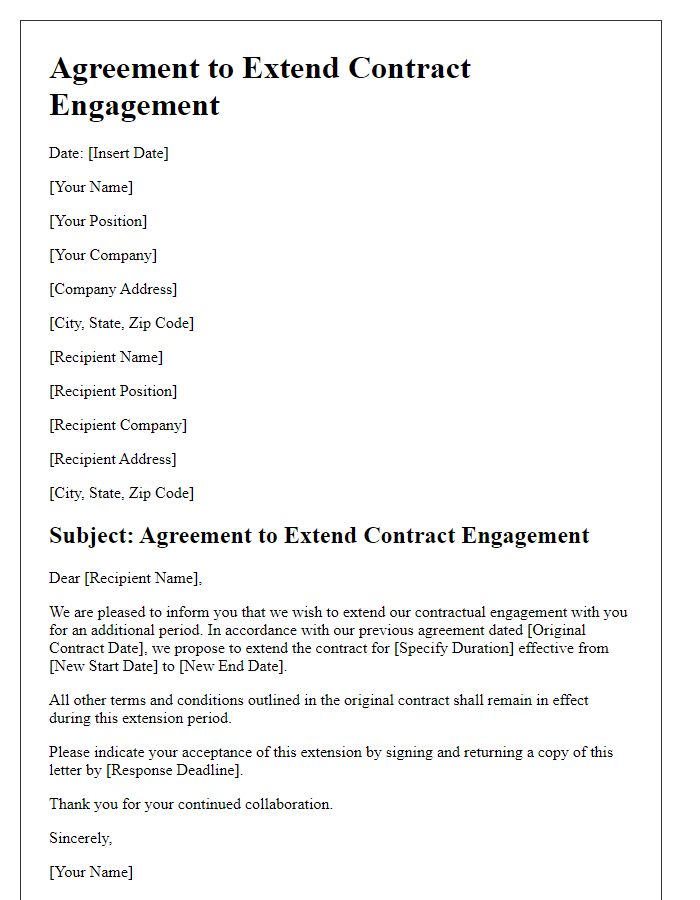
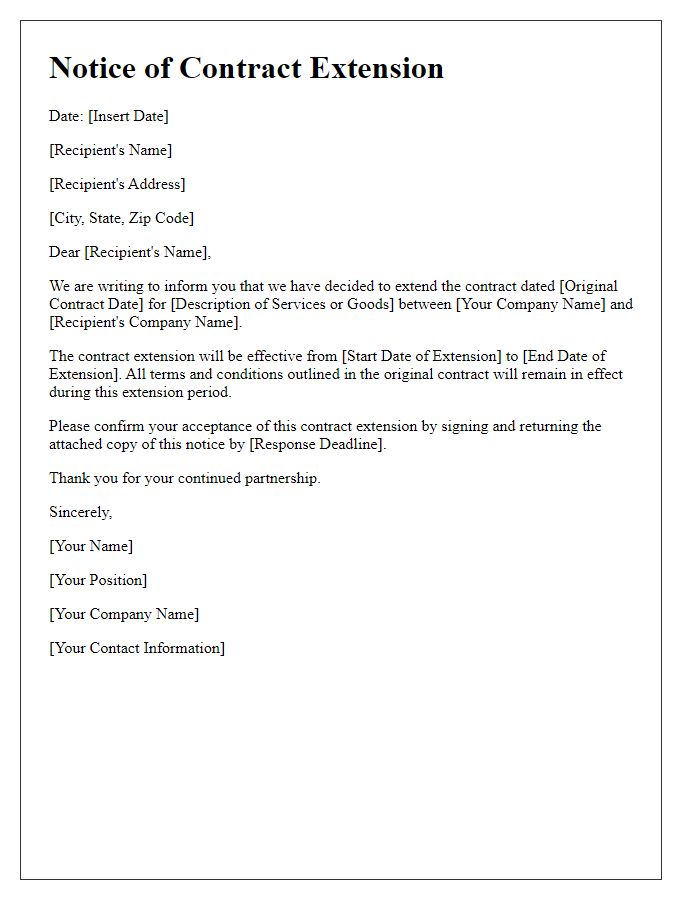
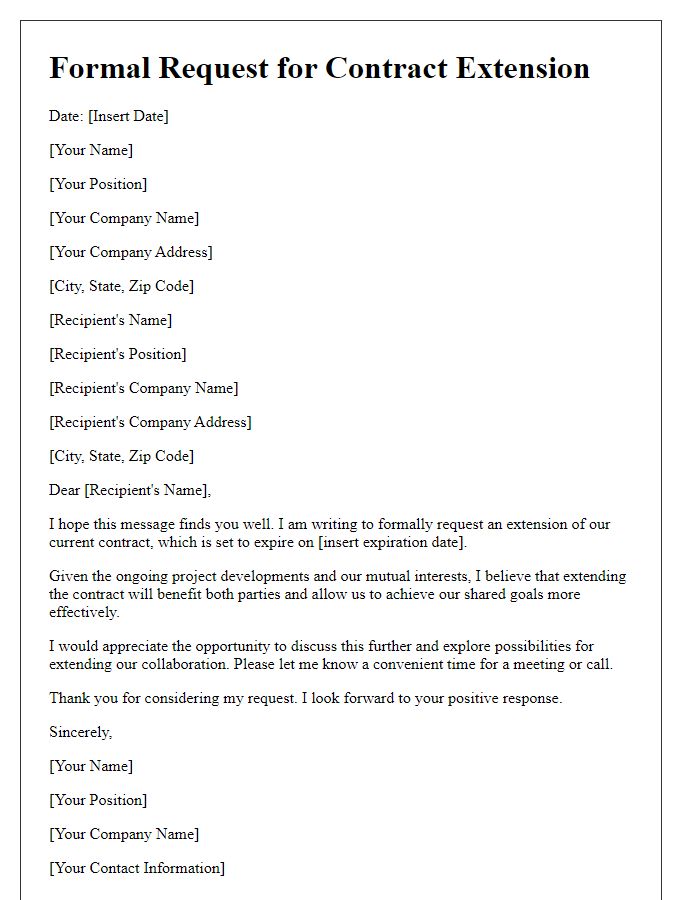
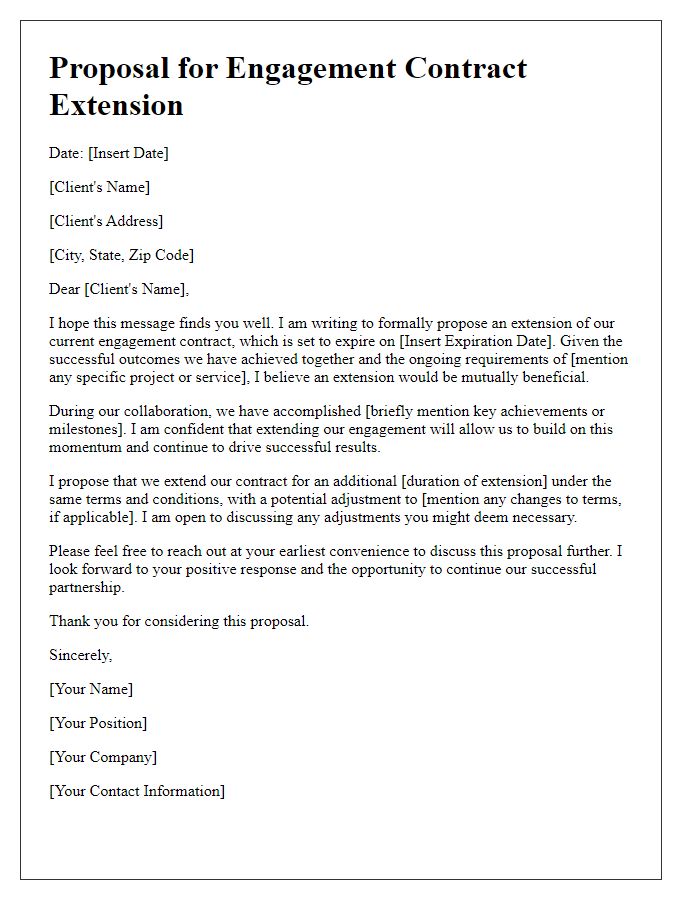
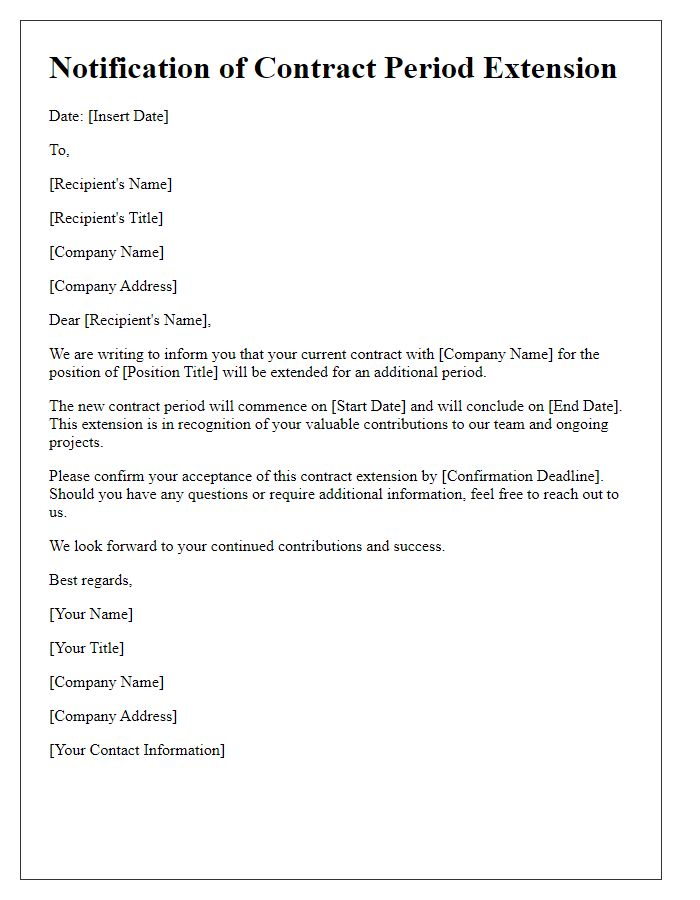
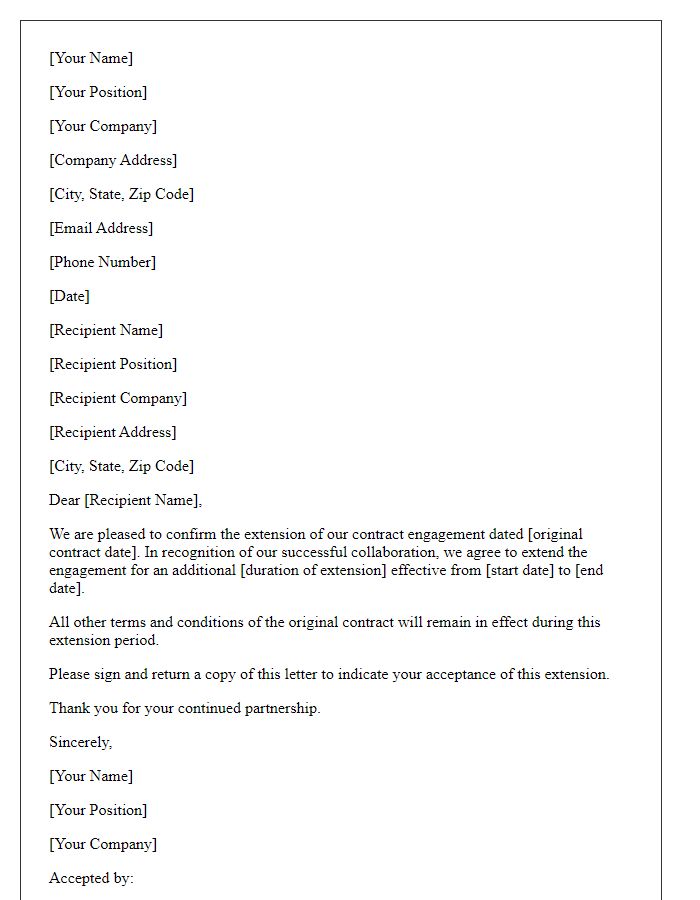
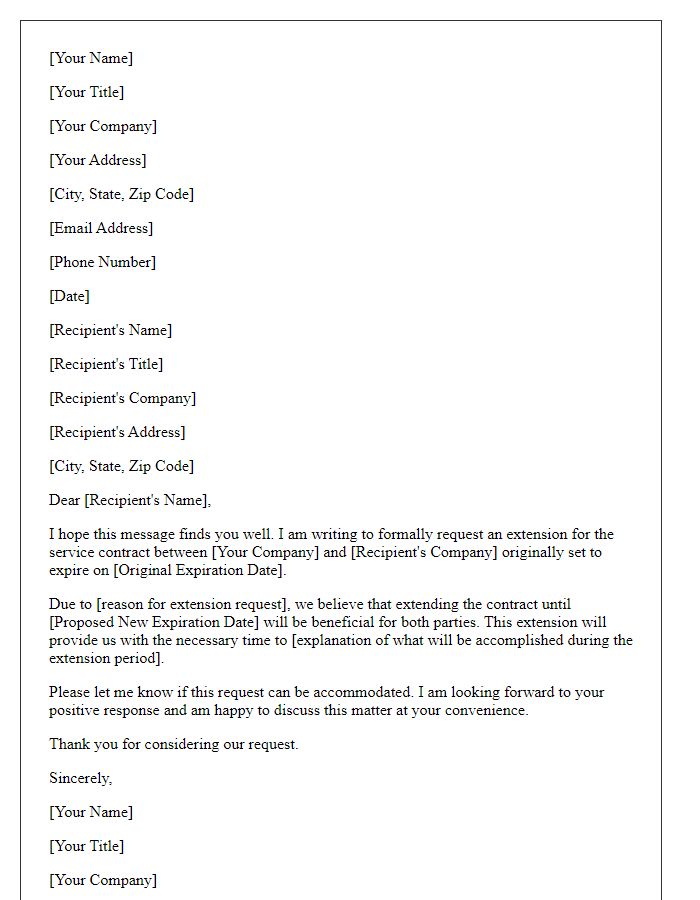
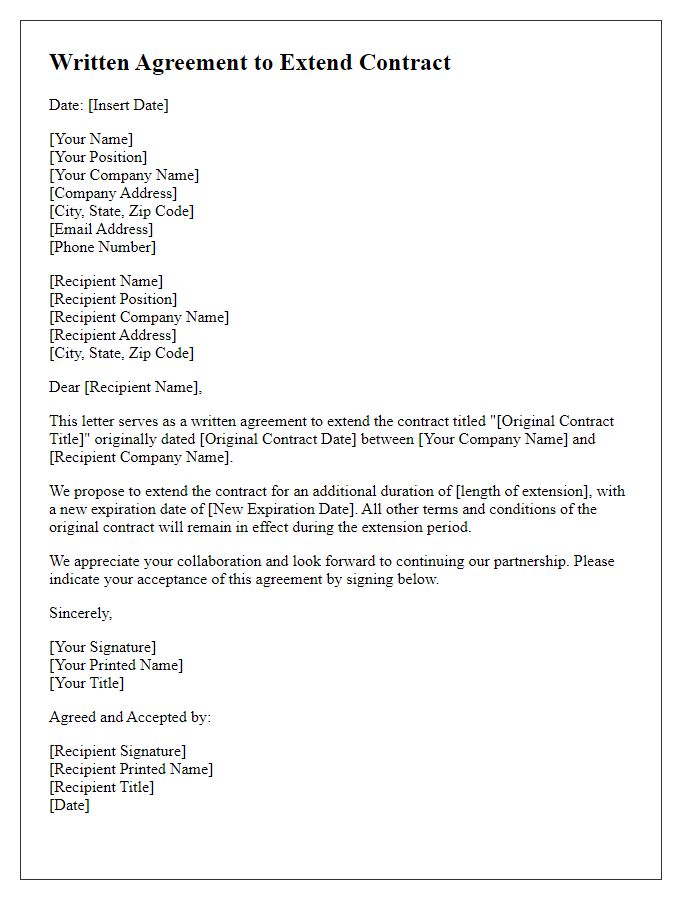
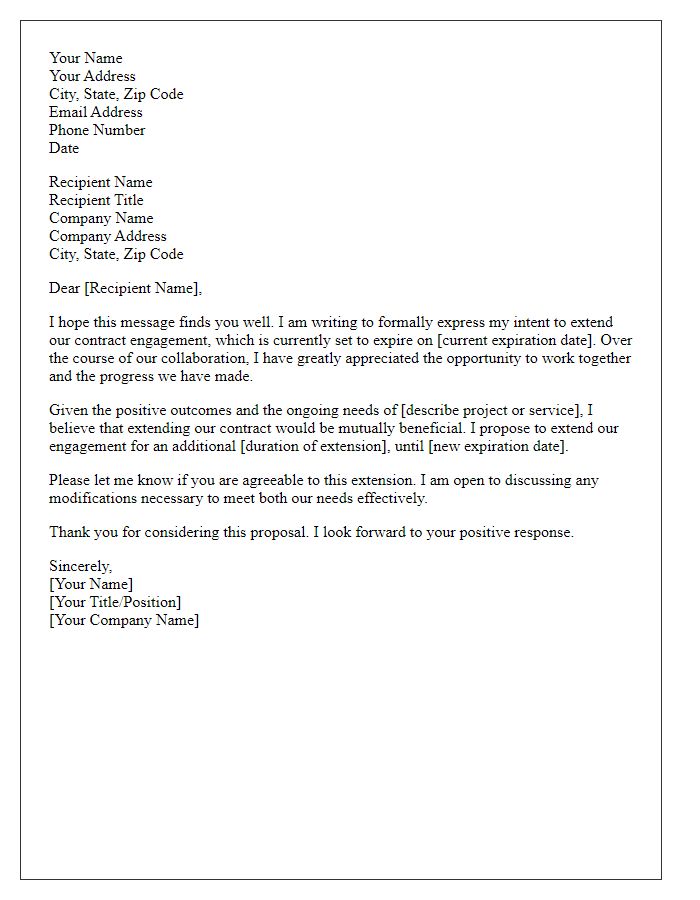

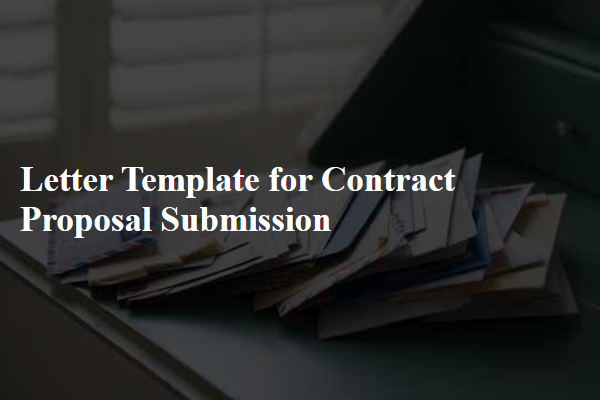
Comments